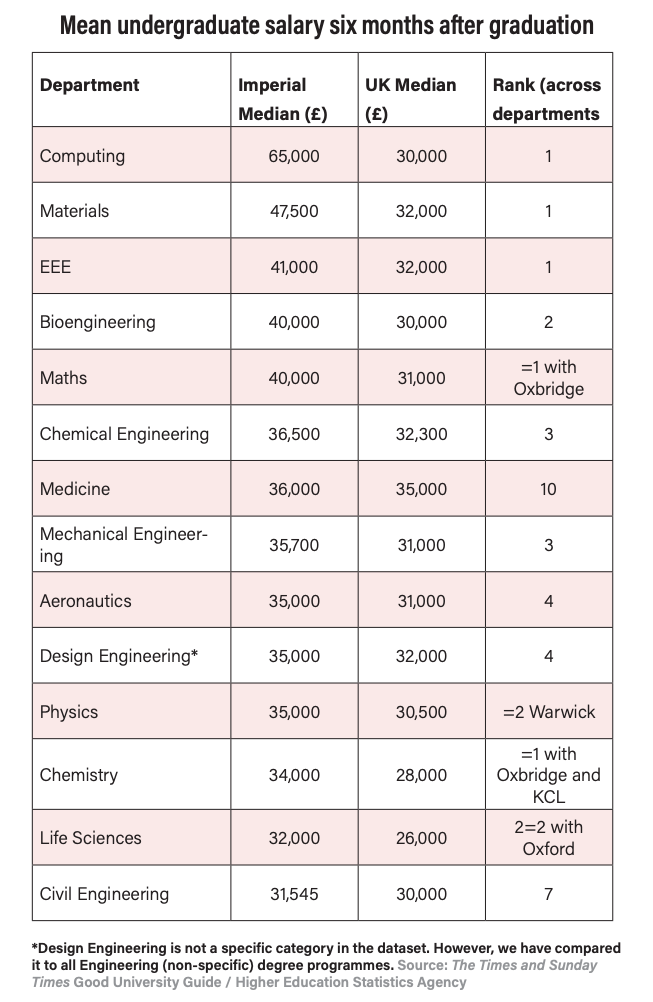Computing tops graduate salaries in UK
Computing graduates earn a median £65,000 six months after graduating
Imperial Computing grads are the UK’s highest university leavers with a median salary of £65,000 six months after graduating. Imperial topped The Times and Sunday Times Good University Guide for graduate employment, with a median grad salary of £37,000, compared to a national median of £28,000 across all subjects and universities, and a Russell Group median of £30,000, according to calculations by Felix.
On the other side of graduate outcomes, with Life Sciences graduates earning a median £32,000, and Civil Engineers earning a median £31,454 per annum – only £1,454 more than the national median of £30,000 for graduates with Civil Engineering degrees.
The news comes as the graduate jobs market toughens, and top firms move away from recruitment. “Recruitment targets are lower than in 2024, with fewer entry-level vacancies in nine out of 15 top industries, including consulting, banking and law,” said Martin Birchall, the editor of The Times Top 100 Graduate Employers.

A recent report from the Institute of Student Employers (ISE) – a non-profit organisation that represents graduate recruiters, such as Deloitte, the BBC and British Telecom – has said that demand for jobs is at a “record high”, with an average of 140 applicants per graduate role, an increase of 59% from last year.
Graduate salaries have also decreased in real terms since 2021. With an average salary of £32,000, wages have increased by 3.2% from 2023-2024, but have amounted to a real-term decrease of £3,559 according to the ISE. Since 2015, the rate of graduate salary increase has been 16.4% compared to a 56.6% rise in those entering the job market after leaving school or college.
However, graduate salaries are still at a greater monetary value than those of school-leavers. Stephen Isherwood, the chief executive of the ISE, said: “The graduate jobs market is tough. There are a lot of students chasing a small number of vacancies.”










